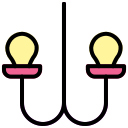
Transformative Effects of Digital Detox on Productivity
Escaping the relentless glare of screens and beeps of notifications is no longer a luxury, but a pressing necessity in the modern age. A digital detox—intentional time spent away from electronic devices—has emerged as a powerful tool to restore balance and optimize performance in both personal and professional arenas. Delving into the transformative effects of digital detox on productivity illuminates how unplugging can sharpen focus, energize creativity, reduce stress, and ultimately unlock one’s full potential.

Cognitive Benefit: Sharper Concentration and Mindfulness
The omnipresence of digital stimuli challenges our ability to concentrate, fragmenting focus through endless notifications. By stepping away from devices, individuals can reclaim stretches of uninterrupted thought. The process of digital detox encourages the practice of mindfulness, where attention is rooted in the present, minimizing mind-wandering and enhancing output quality. Over time, these habits solidify, equipping the mind to better resist distractions, sustain focus, and deliver higher-caliber work.
Task Completion: Getting More Done in Less Time
Constant digital interruptions frequently derail workflow, making simple tasks stretch unnecessarily. Digital detox establishes an environment conducive to deep work, where tasks receive undivided attention from start to finish. With fewer disruptions, individuals cultivate the discipline required to complete projects more efficiently, often discovering they can achieve more in a shorter period than when multitasking with devices close at hand.
Reduced Mental Clutter: Clearing the Path for Productivity
Digital overload often manifests as mental clutter, clouding judgment and muddling priorities. Disconnecting from digital input allows the brain a breather, giving space for thoughts to arrange themselves more coherently. This mental clarity simplifies decision-making and prioritization, leading to more logical approaches to work and the decreased likelihood of feeling overwhelmed by ever-mounting to-do lists.
Emotional Reset: Alleviating Anxiety and Digital Fatigue
Persistent online engagement exposes individuals to information overload, social comparison, and relentless demands for response, all of which can heighten stress levels. Taking time to unplug provides an emotional reset, dissipating anxiety and allowing moods to stabilize. This break refreshes mental reserves, enabling productive engagement with work upon return, rather than feeling drained and reactive.
Improved Sleep Patterns: Better Rest for Higher Performance
The blue light emitted by screens and the mental stimulation from digital interactions can disrupt natural sleep cycles, leading to fatigue and diminished productivity. A digital detox, especially before bedtime, fosters healthier sleep patterns by reducing exposure to disruptive stimuli. Quality sleep translates into increased energy, sharper memory, and better judgment—all vital components for high productivity throughout the day.
Creativity and Innovative Thinking Activated by Offline Time
While actively working on a problem can yield results, research shows that stepping away and engaging in different, offline activities can spark innovation. This “incubation effect” is enhanced during a digital detox, as moments of boredom or quietude provide fertile ground for breakthroughs. Without the constant influx of content, the subconscious mind has a chance to connect ideas, leading to more creative solutions and insights.
Digital screens limit perception to curated, often repetitive content. Unplugging reinvigorates the senses and prompts engagement with the broader environment. During a digital detox, cues from nature, conversations, or simply the surrounding atmosphere stimulate the imagination. These real-world observations often drive unique ideas, inspire new approaches to challenges, and foster a more authentic creative process.
Digital distractions compress thought into quick, surface-level interactions, undermining opportunities for reflection and strategic planning. Purposeful time offline allows individuals to reflect deeply on goals, obstacles, and values. This contemplative state nurtures insight, supporting both the conception and realization of visionary projects. The refreshed perspective gained during a digital detox directly enriches the quality and innovativeness of subsequent work.
